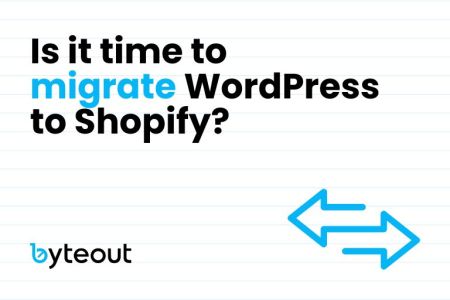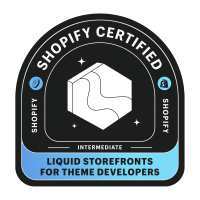
Is it time to migrate WordPress to Shopify?
Should you migrate WordPress to Shopify? One thing is sure: it’s not an easy decision. Maybe you’ve built your entire business on WordPress, and – you’re comfortable with it. But, things have changed in ecommerce, and many other options might be better for your business.
If your store runs on WordPress, chances are it’s powered by WooCommerce – the popular plugin that turns WordPress sites into online stores. WooCommerce has been a go-to for many ecommerce businesses, offering flexibility and a familiar setup.
But as your store grows, you might wonder if it is still good for your business. Sometimes, the platform that got you started isn’t the one that can scale with you long-term.
Moving platforms is about where you see your business heading in the next few years. For many ecommerce owners, Shopify offers a more straightforward path forward, especially as online shopping trends keep evolving.
Table of Contents
Your store is growing, but your site is slowing down 🐢
As your store grows, so do the complexities. It’s not just about products and sales – it’s the integrations, tracking, and even handling higher customer traffic. Sluggish site speed and constant updates – if you’re dealing with this, it’s a sign you’ve outgrown the platform. WordPress (WooCommerce) is great, but things can slow down as your store grows and you add more plugins, pages, and features.
Shopify platform is built specifically for ecommerce. It’s fully hosted – you just focus on your products and sales.
You’re looking for a more effortless checkout experience 💳
Cart abandonment is a big issue for every ecommerce store owner. And messy and complicated checkouts? They’re a major reason people abandon their carts.
Shopify’s checkout process gives you a lot of options to make your customer journey smooth. WordPress plugins can accomplish some of this, but with Shopify, it’s built right in and optimized for ecommerce. No need to juggle multiple plugins that might not talk to each other perfectly.
If you’re noticing a drop in conversions at the checkout stage, migrating to Shopify’s smoother checkout could make a real difference to your bottom line.

You want built-in support for scaling 📈
Scaling isn’t just about adding more products or handling more orders. It’s actually about making smarter decisions as you grow. Shopify provides powerful analytics and data insights directly through its dashboard, giving you an understanding of your customer behavior and sales trends. On WordPress, this often requires third-party tools and complex setups.
Shopify, especially if you choose Shopify Plus, is designed to scale. Whether expanding your product catalog, reaching a global audience, or needing advanced automation tools, Shopify is built to grow with you. We’re here to help you either with a decision or execution. Contact ecommerce experts here or take a look at our Shopify experience.
- Best ecommerce agency in US – Top 10
- Ecommerce automation – work smarter
- The % split – paid ads vs SEO vs organic social in ecommerce
- How to reduce Customer Acquisition Cost (CAC)
- Ecommerce automation and Shopify Flows
Is it time to migrate WordPress to Shopify
So, is it time to migrate WordPress to Shopify? It all comes down to where your business is headed. If you’re facing issues or simply want a platform that scales with ease, Shopify could be the next logical step in your ecommerce journey.
The great news? Migrating isn’t as scary as it sounds. If you’re still unsure, it might be worth taking a step back and thinking about what’s holding your store back from reaching its full potential. Reach out to discuss this with you!

